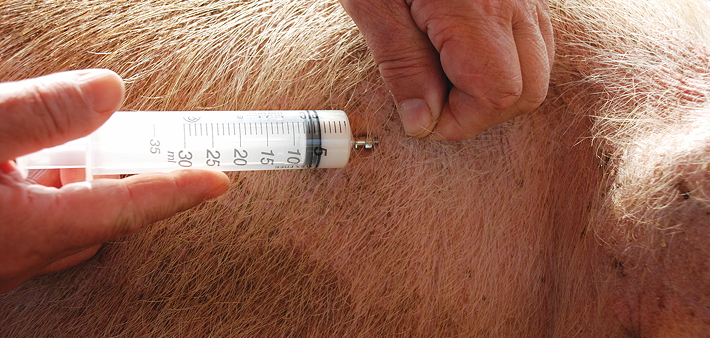NOAH has launched its new Animal Medicines Best Practice (AMBP) Programme with farmer training to support the responsible use of antibiotics across UK farms.
The training programme gives farmers and vets access to new resources, enabling a coordinated and consistent approach to farmer training in the responsible use of antibiotics.
The development of the AMBP Programme has been led by NOAH in partnership with a working group of stakeholders from across the industry including farmers, vets, the Responsible Use of Medicines in Agriculture Alliance (RUMA), the Veterinary Medicines Directorate (VMD), the British Retail Consortium (BRC) and leading academics, to create a robust and trusted training programme for all those working in the sheep, dairy, beef and pig sectors.
The programme will raise awareness, knowledge and understanding of antimicrobial resistance (AMR) and help drive best practice in a consistent manner across UK farms when it comes to using antibiotics.
Training modules are available for farmers to access via the NOAH website or directly through an online Lantra eLearning platform. In addition to the direct farmer offering, vets will also be to access resource materials, enabling them to deliver training to their clients. This veterinary resource centre will follow soon.
NOAH chair Gaynor Hillier said: “We know that there is a real demand for this type of accessible training and we’re delighted to be able to lead the way in making it available. This new collaborative, cross-sector strategy on training will support both farmers and vets, demonstrating that our farmers have the skills to use antibiotics responsibly, providing reassurance to consumers and policy makers.
“NOAH is happy to be building on existing antibiotic stewardship achievements within the farming sector as ensuring best practice is vital to safeguard the future efficacy of antibiotics for us all.”
Biosecurity Minister Lord Gardiner said: “The UK is at the forefront of global efforts to tackle antibiotic resistance. Recent statistics show there has been a 27% drop in use of antibiotics in food-producing animals in the UK since 2014 – meeting a government commitment two years early.
“Our farmers and vets must be commended for driving down antibiotic use in livestock to this all-time low – setting an excellent example for others around the world to follow. But it is vital we continue making progress.
“We welcome this new responsible use of antibiotics farmer training programme, which will support the animal medicines industry to take another positive step towards tackling resistance, safeguarding antibiotics for future generations.”
RUMA chairman Gwyn Jones added: “The AMBP Programme will provide an excellent resource for farmers and vets alike. Training plays a crucial role in supporting best practice to ensure that antibiotics, as a shared human and animal resource, remain effective and available for all into the future.”
The British Retail Consortium said it welcomed the new AMBP Programme and were delighted to have played a role in shaping it.
Elizabeth Andoh-Kesson, the BRC’s food policy advisor, said: “There is a clear demand from the food supply chain for appropriate training, and this initiative has developed valuable consistent, industry-recognised materials to address both supply chain and farm assurance requirements, such as the new Red Tractor recommendation.”
Marcus Potter, CEO at Lantra, added: “As the UK’s leading awarding body for land-based training and qualification, Lantra is delighted to be involved in the development and roll out of this important farming industry initiative in partnership with NOAH.
“We are committed to working closely with industry stakeholders to identify issues where quality assured training is part of the solution. This collaboration with NOAH is a great example of that commitment in action. By combining NOAH’s technical expertise with Lantra’s know-how in developing and delivering training we have created a certified course that will help UK agriculture meet the challenges of managing antibiotics and comply with latest industry guidance.
“In this case we are delivering an E-Learning solution to enable farm staff and others to access the training when it’s convenient for them.”




